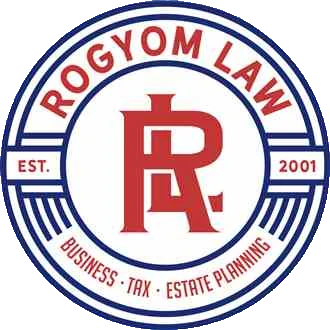With Maryland tax audits increasing, you should ensure your company is prepared. An ongoing, organized approach to preserving necessary documents will streamline a sales tax audit and may even lead to tax refunds. First, beware, a state auditor visiting your office for a sales tax audit isn’t required to keep the focus solely upon sales taxes. A typical audit may cover other area such as your payroll taxes, and information obtained through the audit can lead to income tax adjustments as well. So, while a sales tax deficiency may only cause a minor sales tax adjustment, the revenue and expense information obtained can lead to sizable state income tax adjustments. Further, since states share their income tax adjustments with the IRS, you may trigger a federal income tax audit and adjustment as well.
Consider what an auditor generally will request from your business for a sales tax audit:
♦ Accounting books, including income statements, depreciation schedules, balance sheets, general ledgers, and federal & state income tax returns.
♦ Supporting documents, such as sales invoices, purchase invoices, sales journals, purchase orders, bank statements, contracts, and leases.
♦ Exempt sales documents, including resale certificates and exemption certificates.
♦ The sales tax returns and supporting workpapers.
It is common for an auditor to request more information than is needed and giving the auditor too much or too little information can make the audit an unpleasant experience. Depending upon the nature of the business and the audit method to be used, the needed information can vary. Needless to say, before you start shoveling documents to the auditor, have your tax adviser review the information. Know where the problems are before the auditor does.
The auditor will often ask the taxpayer to waive certain rights or to agree to a certain audit methodology. A tax attorney should be contacted before agreeing. For instance, if your company is fully capable of documenting every taxable purchase made during the audit period and the amount is agreeable, why would you agree to an auditor’s suggestion that sampling be used instead? Unfortunately, before making such a decision, most taxpayers do not request a tax adviser to review their books and guide them properly.
The auditor will compare the information provided to your sales tax returns and determine whether there were discrepancies. For instance, the auditor can compare your total sales according to your income tax returns to your sales tax returns, or your sales invoices to your sales tax returns. Further, for purposes of the use tax audit, expect the auditor to compare your property tax return and your depreciation schedules to your reported purchases. But, with that information in hand, an auditor would be presented adequate information to expand the audit from beyond sales taxes and into income, payroll, admissions & amusements, and other tax areas.
The auditor will certainly be searching for underpayments of taxes, but do not assume the auditor will point you toward tax overpayments. You and your tax adviser must be vigilant to spot errors in the auditor’s calculations, sampling methodology, and legal arguments. Further, tax departments often train auditors on the job and your company may be their classroom, so carefully reviewing the auditor’s workpapers and audit reports is a necessity. Experienced auditors expect taxpayers to have a tax adviser review their work, so do not fear offending them by requiring the auditor to justify their adjustments.
While a sales tax audit may not be a pleasant experience, the audit will present opportunities. For instance, if your tax reporting has been flawed in general, it is common to receive a refund. Further, you may be able to take the information obtained from a satisfactory audit and lock-in those results through a managed compliance or effective tax rate agreement whereby your use tax payments can be automated. Such an agreement allows you to aggregate sales and purchases by accounts and pay use taxes by simply applying the account’s agreed upon taxable percentage.
A sales and use tax audit can be a difficult process for a company and its staff. Whether your company is currently under audit or questioning its compliance, proper preparation and guidance will allow the company to minimize its risks and ensure its tax burdens are minimized.
For further information, please contact Jeff Rogyom at (410)929-4578. Please review the Disclaimer page regarding use of this website and its information.

